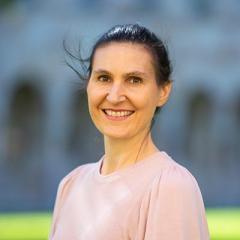I grew up in Brisbane and have witnessed a lot of changes since it was considered a big country town and the nights were filled with the eerie calls of bush-stone curlews. My family moved from Switzerland, so we were always going on daytrips to national parks and the beach, and spending holidays at Noosa. I have always been fascinated with animals and I love camping and bushwalking in nature. I studied Environmental Science at The University of Queensland (UQ) back when it was run by the three Davids (Doley, Lamb and Yates), majored in ecology, and have never looked back. My Honours was on the wallum froglet, a tiny frog specialised to acidic coastal heathlands, with Susanne Schmidt, who continued to be a mentor to me, later co-supervising my Masters on the climate change vulnerability of subtropical rainforest fauna with Diana Fisher.
London then Brisbane calling
I lived in London for a while, managing Environmental Impact Assessment projects for iconic office and residential towers, learning much about planning and sustainability. But I missed the wildlife in Australia and was soon back in Brisbane with my English musician husband, working as an ecologist. I have spent years around Queensland surveying flora and fauna and searching for threatened species from the crack of dawn until midnight, by 4WD, foot and canoe. Some highlights are finding ornamental snakes, black-breasted button-quails, boggomoss snails and harp trapping microbats. But I was jaded by the impacts of large infrastructure and mining projects and writing revegetation plans where very little was known about success. So, I decided to do a PhD (with UQ and CSIRO) on improving the success of ecological restoration and enhancing outcomes for biodiversity conservation and carbon sequestration, guided by wonderful supervisors, Kerrie Wilson, John Dwyer and Jacqui England. It was challenging doing a PhD with young children, but in the end, it was my kids who pulled me through – and ballet. It has been so important to have a creative outlet that’s just about me.
Best of both worlds
Now I am a terrestrial ecologist and postdoctoral research fellow working on coastal wetland conservation and restoration with the Lovelock Lab in UQ’s School of Biological Sciences. I find coastal wetlands so interesting because they are complex environments influenced by land and sea, providing habitat for both terrestrial and marine fauna (best of both worlds!). I have been working on an ARC linkage research project with Megan Saunders, Catherine Lovelock and partners at The Nature Conservancy and Healthy Land and Water to identify socioeconomic and biophysical factors that enable effective conservation and restoration of mangroves globally and in south-east Queensland. I have learnt so much over the past two years about tropical coastal and marine ecosystems.
A highlight of my postdoc has been the opportunity to work with international experts co-authoring guidelines for countries to incorporate coastal wetlands into their national greenhouse gas inventories for the Australian Government International Blue Carbon Partnership, which was launched at COP26 in Glasgow. I am also leading a National Environmental Science Program research project on developing a framework to select coastal wetland restoration sites for blue carbon in different regions of Australia that considers biophysical suitability, economic feasibility, wetland values and benefits to Traditional Owners.
Restoration
I value volunteering to improve restoration practice and advocacy for restoration, and for connecting with people who share the same passion. I’m on the board for the Society for Ecological Restoration Australasia, and am a representative on the Restoration Decade Alliance, a consortium of Australia’s NGOs involved in large-scale restoration, working together to achieve the goals of the UN Decade of Ecosystem Restoration in Australia. This keeps me grounded in the needs of practitioners and the power of collection action. I am excited to be a restoration ecologist in the beginning of the UN Decade, where we have an opportunity now and in the coming years to recover our degraded ecosystems.

